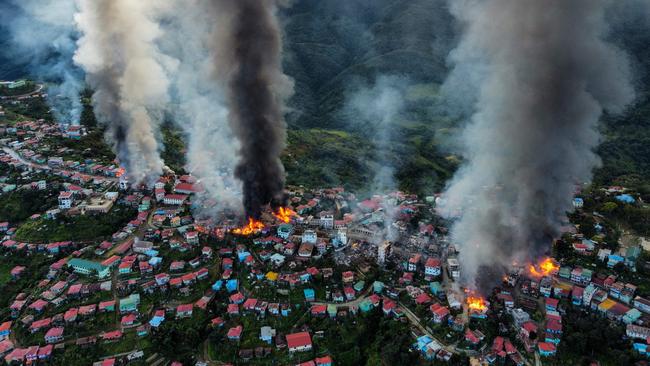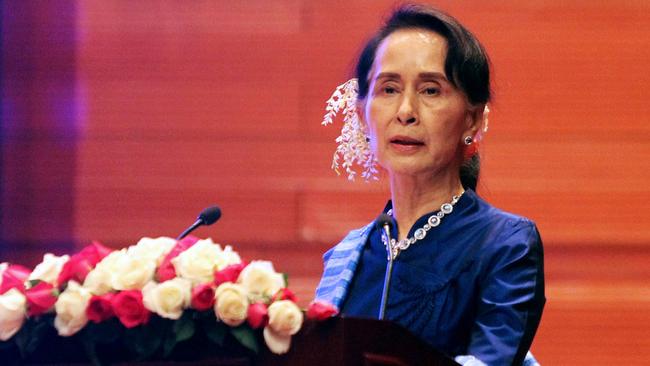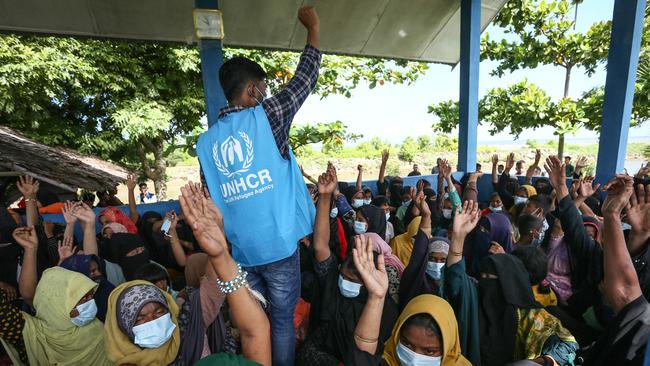Immigration lawyers say 80pc of visitor visa applications are being rejected
The federal government is denying visas applications from family in crisis-racked Myanmar ‘for fear they will lead to asylum claims’.

Myanmar Australians say they face “collective discrimination” from the federal government which is denying visitor visas applications from family in crisis-racked Myanmar for fear they lead to asylum claims.
Immigration lawyers working with the diaspora community say up to 80 per cent of applications are being rejected citing political and economic unrest in Myanmar, where intensified armed resistance to the military is causing mass displacement in ethnic border areas and stretching junta resources to the limit.
Lawyer Ko Ko Aung says he has been inundated with calls for help from Myanmar Australians whose applications to sponsor loved ones’ visits for weddings, graduations and imminent births have been denied by the Department of Home Affairs, which insisted on Thursday its immigration policy was “non-discriminatory” and that every application was assessed on its own merits.
While the government has streamlined protection visas for Myanmar citizens — many of them students — who were stranded in Australia by the February 2021 coup that ousted the government of Aung San Suu Kyi, the door has largely closed for Myanmar residents hoping to visit family in Australia.

A Home Affairs spokesman told The Australian all visitor visa applicants must be able to prove they intend a “genuine temporary stay in Australia”.
“I understand the government concern but what’s frustrating everybody is you can see they have clearly not considered personal circumstances. Some rejection letters appear almost identical,” Mr Aung said.
“The Australian government is discriminating against Myanmar visa applicants, assuming all will apply for asylum once they get here.”
Their cause has not been helped by the resumption of boats carrying desperate Rohingya asylum seekers from refugee camps in Bangladesh. More than 1000 have arrived in Indonesia’s Aceh this past week.

Mr Aung said some visa applicants had been told they had insufficient ties with Myanmar, even if only one child was in Australia and four in Myanmar. Most were middle-class urbanites, many had businesses, some were caring for grandparents, “but none of that is being considered”.
“There are doctors and nurses who have contributed so much in recent years to Australia and all they’re asking is that their parents be allowed to visit for Christmas because they work shifts and can’t easily travel themselves.”
After years of nursing in regional Australia, including during the Covid years while studying for a medical degree, Myanmar Australian Richard* (he asked not to use his real name) graduates as a doctor next month.
But his only sibling _ a sister in Yangon he has not seen for six years _ will not be there because the government has deemed her an asylum risk.
The fact her husband is staying back in Myanmar, that she has a profitable business there, and that Richard has offered to put up a $35,000 bond for his sister and his two young nieces under a family sponsorship visa has not shifted the needle one iota.
“I don’t know what more I can do,” he told The Australian. “I’ve gone through many hoops to become an Australian citizen, I’ve studied medicine here. I thought the fact I am a health professional might carry a bit more weight.”
He could appeal through the Administrative Appeals Tribunal, but that process can cost tens of thousands of dollars and take up to two years.
Data scientist Theresa*, 32, who moved to Australia as a skilled migrant before the coup, says Home Affairs this month denied a visa to her Aunt who helped raise her and who is making the dress for her January wedding.
Her application was refused even though she has visited Australia twice in two years on a previous multiple-entry visa, and is sole carer for a Down syndrome brother in Yangon.
“I was devastated, especially considering she could have stayed last year if that’s what she wanted to do,” said Theresa.
“They said she might not return home because of the political unrest, which is the same reason they give for everyone now.”
One of her friends will graduate next month without his parents, while another has been told her mother cannot come to meet her newborn grandchild.
Medical specialist Khin Zaw* says he was forced to take leave to meet his parents in Thailand later this month after they too were denied visas to spend Christmas in Australia.
“In stressful times like this we need each other more,” he said. “But we don’t have the same rights as people from more developed countries who can visit here with no financial or emotional stress.
“It is collective discrimination and it’s taking a toll.”




To join the conversation, please log in. Don't have an account? Register
Join the conversation, you are commenting as Logout